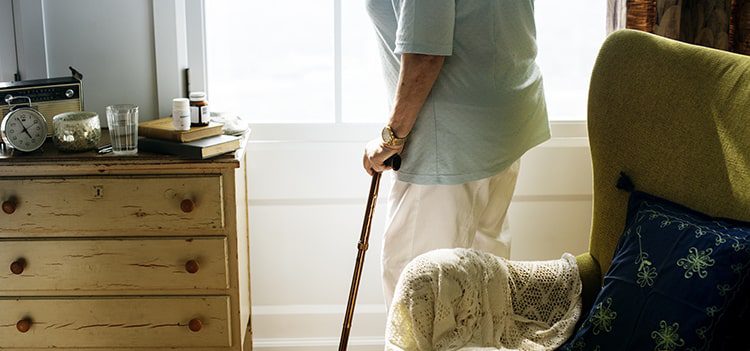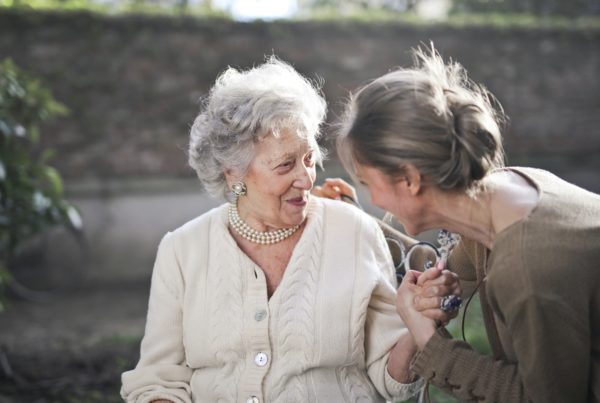Look out for these signs that your ageing parents may need help
As our parents age, you’ll be aware of them having forgetfulness, lower concentration, being more frail, and other usual signs of ageing. What worries us more, is whether they are still coping; how can you tell, and how can you talk to them about getting help when they need it.
Unsteady on their feet and having falls
Every year, more than 70,000 people over 65 are admitted to accident and emergency following a fall.
As we become older, muscles, joints and bones change significantly and bones can break more easily, meaning we can’t move as quickly, or as well as we once did.
Normal daily activities can become more difficult, tiring, or take a lot longer to do. If you notice signs that your parent is having trouble moving about, it may because they are experiencing these changes. Remove any trip hazards around the home – you may want to evaluate their home for any home adaptations that may be needed.
You may also wish to find out if your parent has recently had their eyesight checked, as often a fall can be avoided by ensuring regular eye check-ups are happening.
A cluttered home which is usually clean and tidy
You might notice that your ageing mum or dad are seemingly hoarding things downstairs, or not putting things away. Check what types of things they are, as this can help you to determine what the difficulty might be.
If there are things they would normally go upstairs or into another room for, this could indicate a lack of mobility or perhaps something that is causing pain when moving.
Changes in mood and activities
Mood variations are only to be expected, it’s frustrating to become less able to do things for yourself. However, if you notice that sadness, or tearfulness is persistent, and is accompanied with a lack of interest in their usual activities, a cease in social activities, difficulty with sleeping, or they are experiencing weight loss, then there is a good chance that these are signs of depression or anxiety which may be brought on by financial worries, loneliness, or coping with ageing.
Anger and aggressive behaviour can be brought on by trying to cope with declining physical abilities and cognitive function causing frustration.
Changes in personal hygiene or appearance not maintained
If you notice some changes in appearance of one or both parents, they may be finding the bathroom a difficult place to manage; fear of slipping may cause them to be afraid of using the bathroom – especially if they live alone. Showering and washing can also be a tiring task, it’s often found to be a combination of the two.
It may also be that they are worrying about money and are cutting down to save on the utility bills.
Changes in memory, concentration, or behaviour
Most of us will experience slight deterioration in memory and concentration when ageing, it’s completely natural and not necessarily an issue. Forgetfulness can be frustrating but it’s completely normal.
You can offer lists, notice boards, and reminders to help out. However, if this is progressively getting worse; they are unable to perform daily tasks, forget commonly known things, unable to follow a story, or instructions then it may be time to be checked out by the GP.
How to help
Try not to directly assume that your ageing parents are having any problems, or dive on in there to fix them. This will more than likely create friction, and possible an argument. Gently and respectfully, try bringing up that you’ve noticed something, and ask what you can do to help – then make a suggestion if it feels appropriate. The way you talk to your ageing parent about getting help is important and needs to take a ‘working together’ approach.
If you feel that your parent is putting themselves in danger, it’s easy for emotions to run high and you’ll make more headway by being calm. You parent will be worried that they might lose control of their own choices in life.
MyLife can help you overcome any challenges with parents who may be refusing help, by assessing the situation, and having a health professional give their advice usually helps a great deal.




